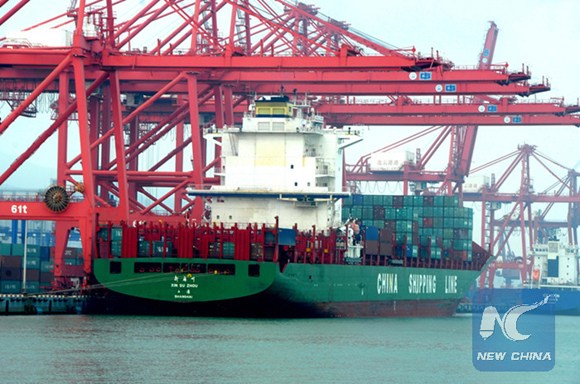 A bulk carrier freighted with goods on a pier in Lianyungang, East China. (Xinhua file photo) Foreign direct investment (FDI) into the Chinese mainland dropped 1.2 percent year on year in the first seven months to 485.42 billion yuan (72.79 billion U.S. dollars), data from the Ministry of Commerce showed Tuesday. In the first seven months, 17,703 new foreign-funded companies were established, up 12 percent year on year, according to the ministry. The trend of an influx of foreign investment into high-end sectors continued, data showed. High-tech manufacturing saw FDI rise 8.3 percent to 37.39 billion yuan, while foreign investment in high-tech services surged 16.8 percent to 70.31 billion yuan. Non-financial outbound direct investment (ODI) by Chinese companies dropped 44.3 percent year on year in the first seven months to 57.2 billion U.S. dollars, mainly due to government measures to curb irrational investment. Outbound investment in real estate, culture, sports and entertainment sectors saw substantial declines during the period, the ministry said. Meanwhile, outbound investment to countries involved in the Belt and Road Initiative stood at 7.65 billion dollars, accounting for 13.4 percent of the total ODI, up 5.7 percentage points from the same period in 2016. While Chinese companies are going global, FDI still makes great sense for China today. From research and development centers and technological spillover to the acquisition of world-class management skills, the impact of FDI in China is huge. The Chinese leadership has promised to create "a stable, fair, transparent and predictable business environment" with a range of measures under way. China has created 11 free trade zones where foreign firms can avoid red tape when applying for registration. It is shortening the list of sectors that are off-limits to foreign investors, as well as reducing market entry restrictions for industries such as transport and financial services. |
Powered by Discuz! X3.4
© 2001-2013 Comsenz Inc.